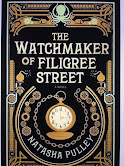Rainbow(Man) Connection by Theresa Gauthier
David Bowie Rainbowman: 1967 - 1980 by Jérôme Soligny
Each chapter ends with interviews—ranging from a few lines to a few pages—of comments from the various people who worked with Bowie or knew him in his earliest days. The comments are insightful, and many I hadn’t read before.
Each chapter opens with a quote from Bowie—from some interview he’d done—and concludes with the opinions of the people who knew him at the point in time about which that chapter focuses. In between, Soligny provides the details: the album that was released, the tours, the singles, the clothes Bowie wore, who he’d met and what impact he’d had or them or they’d had on him. Detail after detail paints a brilliant picture of the events that shaped Bowie’s career allowing each interviewee to weigh in once we, the readers, have a firm grasp of that picture.
Sometimes, I couldn’t wait until the end of the chapter, and spent my time flipping back and forth to the interviews and back to the chapter. Maybe I was cheating, but it was fun.
Soligny is an authority on David Bowie, and one of the best lines in the book is his comment, “David plays saxophone, guitar, a bit of keyboards, but above all, he played…musicians!”
His writing is at times both intimate and explanatory—but you never feel like you’re getting an info dump. Instead, you’re there with Bowie seeing what was happening, wondering what was going through his mind and the minds of those closest to him until a quote or a bit of an interview illustrates those things to perfection.
Bowie, to me, always appeared in charge, in complete control of what he did and how he appeared. His musical career was one of chameleon-like reinvention becoming something, tiring of it as soon as it became popular, and reinventing himself once more. You get the impression that he was always ten steps ahead, that once he’d finished something, recorded an album, he was thinking about what he’d do next…almost as though the touring was something he was too preoccupied to do.
Yet, I’ve seen video footage of him on tour, of him strolling through a city with members of his band, with Peter Frampton immersed in their enjoyment of wherever they were and just being, just living that moment. It’s beautiful. More than that, it’s inspiring.
Immersed is how I felt reading this book. It’s an intense experience that I can’t help but compare to the days when I lived and breathed The Beatles devouring every tome I could find on the band, the main players in the story, and even in their solo careers, their impact on the world, and more.
This book ignites my wish to read more on Bowie, though I’ve always been cautious about what to read having read books about The Beatles and others that were sometimes less than stellar.
Most music fans will talk about favorite songs, favorite albums, but Bowie fans talk about favorite eras, favorite characters—with this book we can trace the beginnings of each decision, the evolution of every character up through 1980.
I gather (and hope) there will be a second volume.







Comments
Post a Comment